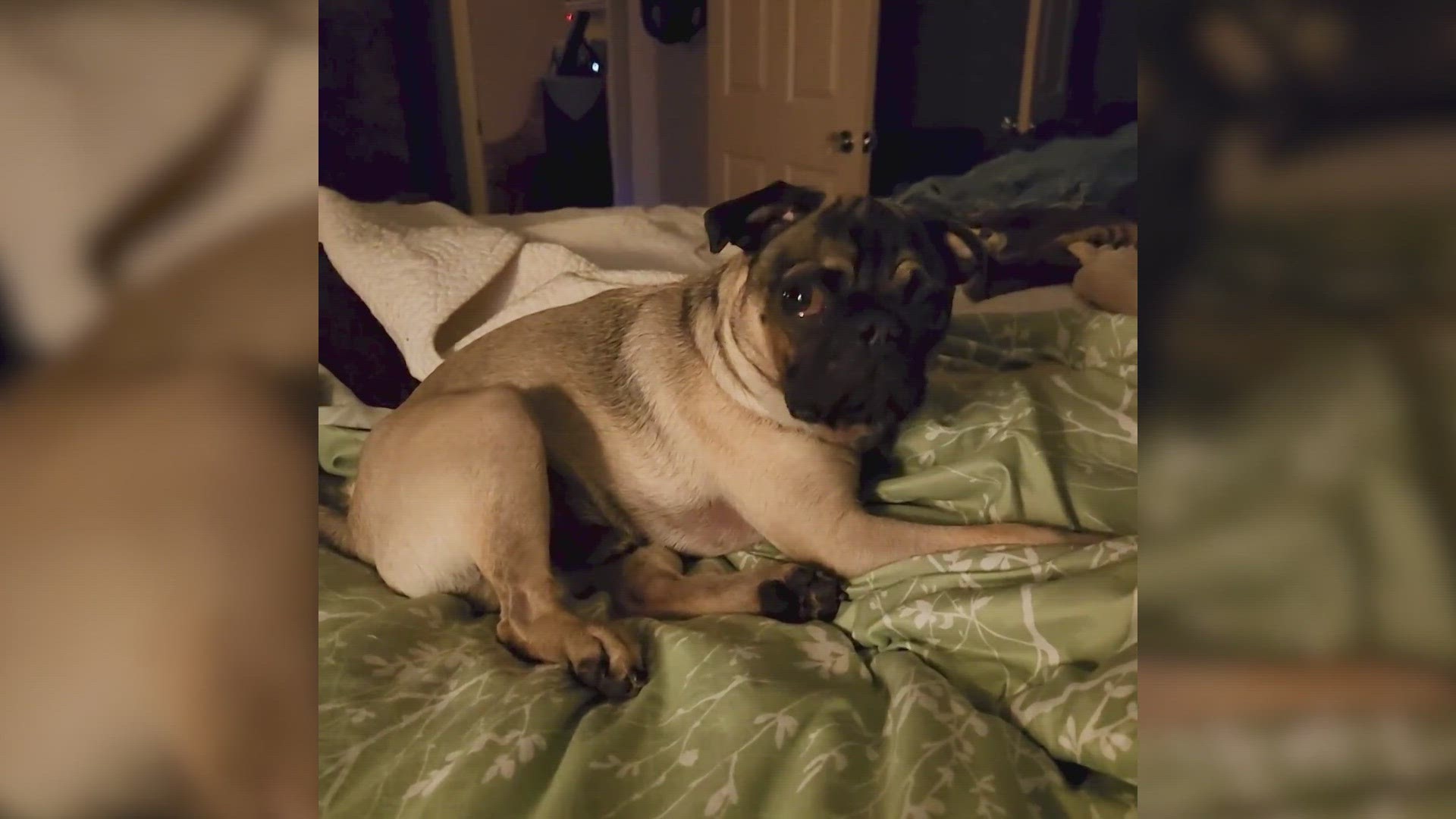FORT WORTH, Texas — Every time Liesl Manone takes her pug Enzo for a walk, she's on the lookout.
That's because after a recent dog walk Enzo's demeanor changed dramatically.
"We were sitting here, right here and I noticed he was just moving like this and looking around. It was very strange," Manone said.
Enzo's strange behavior convinced Manone to take him to the vet. Shockingly, they revealed Enzo was high from ingesting marijuana.
"They said this dog has marijuana. I said, I don't have any marijuana in my house. Where would he have gotten it?" said Manone.
That's when Manone recalled Enzo eating something during their walk. She shared with WFAA that before she could get Enzo to release whatever it was he swallowed it. They then continued their walk.
These days, animal emergency room doctor Lindsay Robinson can spot marijuana toxicity right away. She treats pets for it at the Fort Worth Animal Emergency Hospital.
"It's really just I.V. fluids to flush them out. Time. Nausea, control and then controlling any of the secondary symptoms they get. If they get seizures, we control that," Robinson said.
Robinson shared with WFAA that many times when they detect marijuana toxicity in pets the owners may not feel comfortable sharing how exactly the exposure or ingestion happened.
Vets are rarely concerned about the cause and are more concerned about making sure the pets are nursed back to health.
Pet toxicity is rarely fatal. The impact sometimes depends largely on the amount ingested and the size of the pet. Time of the ingestion plays a huge role in each case, as well.
"If they get seizures, we can control that. They can get comatose to the fact that they have trouble breathing. Some of these dogs need to be intubated and kept on like a ventilator for a day or so," said Robinson.
"Most of the dogs are going to get better within the first 12-to-24-hour period, and I mean markedly better. But in the worse cases, it could take up to three to four days to totally get it out of their system so they can still be a little drunk at home or a little affected or a little reactive," she added.
What happened to Enzo is more common than pet owners think -- not only across the country, but even in North Texas.
According to the American Society for the Prevention of Cruelty to Animals, pet marijuana ingestion cases increased by 11% last year. That's on top of the 6,200 cases reported in 2021.
In the five-year period from 2018 to 2022, cases jumped by 300%.
Now, after a huge animal hospital bill, Manone will be paying more attention to what Enzo is sniffing on the ground during their walks.
"$615 for, you know, liquids, nausea medication and some peace of mind," Manone said.
Her peace of mind includes sharing what happened to Enzo and urging people to stop discarding their unused marijuana cigarettes.

